THE WALKABLE CITY
PROMOTING WALKABILITY THROUGH DIALOGUE
DIEUDONNÉ ELOHYM DA COSTA (ANGOLA)
CAPE PENINSULA UNIVERSITY OF TECHNOLOGY
CAPE TOWN, SOUTH AFRICA
DIPLOMA IN ARCHITECTURAL TECHNOLOGY
ELOHYM.MVC@GMAIL.COM
MAURICIO BARRIGA (ECUADOR)
COLOGNE UNIVERSITY OF APPLIED SCIENCES

COLOGNE, GERMANY
MASTER IN NATURAL RESOURCES MANAGEMENT & DEVELOPMENT
MAURICIOBARRIGA2905@GMAIL.COM
THEODORA KIRUNDA (SOUTH AFRICA)
UNIVERSITY OF PRETORIA
PRETORIA, SOUTH AFRICA
BACHELOR OF ARCHITECTURE
THEODORA.KIRUNDA@ICLOUD.COM

THE WALKABLE CITY

PROMOTING WALKABILITY THROUGH DIALOGUE
W A L K A B I L I T Y
Our cities still suffer the results of old-fashioned ideals of planning. Focusing on cars and roads, designers have underestimated the importance of other means of transportation. More and more, cities have been filled with larger streets and highways, introducing more cars and more traffic, longer commuting distances, and making walking less appealing and safe. Inconveniently, public transportation has also not been a priority.
DECISIONS CAME FROM HIERARCHIES AND THE VOICES OF PEOPLE WERE NOT CONSIDERED.
Cities, especially in the global south, are still evolving into species of overwhelming car race games, where pedestrians and cyclists have to evade the risks of being hit. Our cities in the global south have been used as experimentation ground for failed city utopias! Being able to walk to our destinations has become a privilege limited to touristic and fancy areas. Insecurity has been caused by lonesome paths, with no coffee shops, parks, restaurants or businesses but walls Cars and walls Walking has turned into the transportation means of the unprivileged who cannot afford a car, motorbike, or taxi ride. If you walk or cycle, you might become prey, especially at night, and even more if you are a woman...
WA T H E W A L K A B L E C I T Y T H E W A L K A B
P h o t o c r e d t : M a u r c o B a r r g a
A L K A B I L I T Y W A L K A B I L I
Walkability
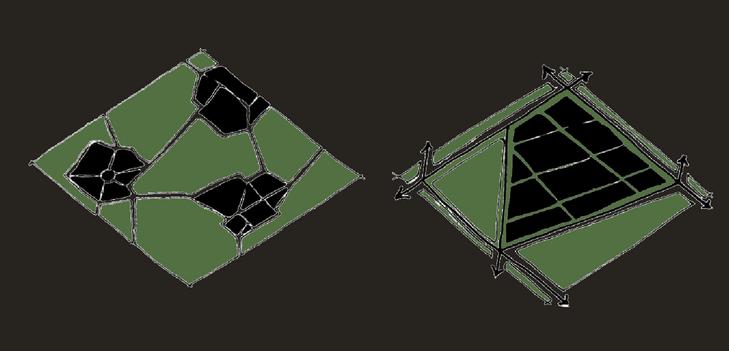

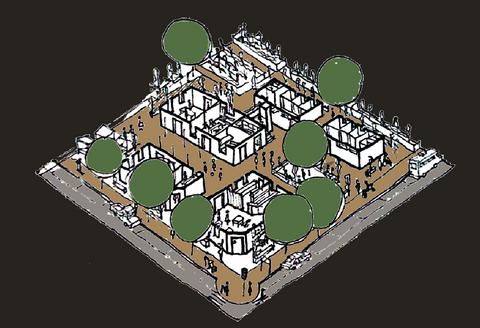
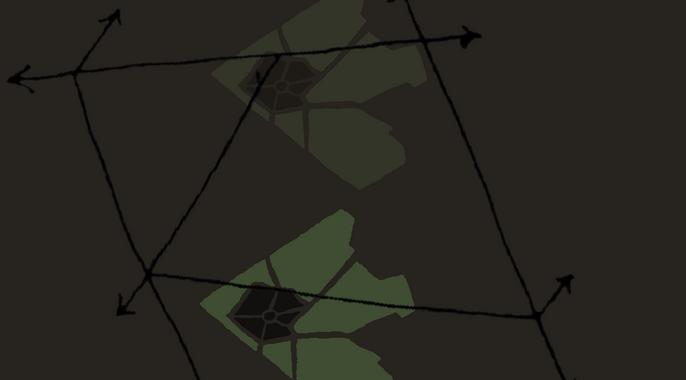
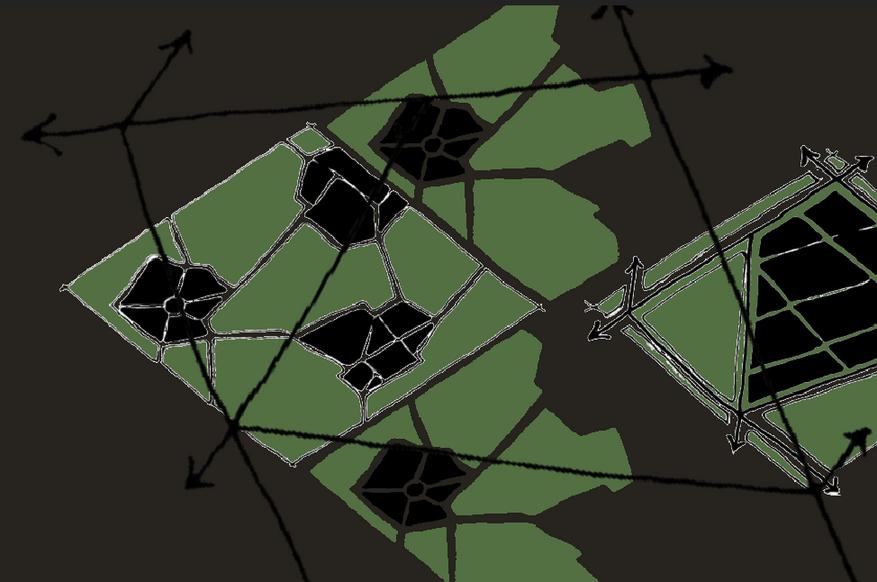
We want our cities to change! We want to imagine a different future! We believe in walkable, safer, and healthier cities, re-created by the power of dialogue and inclusion of citizens in decision-making. We want less cars and smaller roads. We want to be able to walk short and long distances, not only as the last-mile part of commuting but as a way of enjoying our surroundings and taking ownership of our spaces. We imagine a city where kids can play outside, on the streets! We believe that more walking is related to more presence of local shops strengthening our diversity as well as identity! More efficient transportation is key to this change and can be achieved with less expensive car infrastructure while fostering social cohesion and making cities lively and livable.
Multi-functionality
Car-free Areas
Decentralisation
W
W A L K A B I L I T Y W A L K A B I L I

Traditional city planning and decision making happens only at political level, without citizen intervention and without inclusive processes that guarantee their needs. The result has proven to be not sustainable neither environmentally, socially, nor economically speaking, besides promoting injustice. Cities in developed countries which decades ago incurred in such ventures are now advancing to huge infrastructure transformations to revert those ideas and foster walkable cities. This has cost hundreds of millions of dollars which largely come from citizen taxes. In the global south we cannot allow us the time and financial luxury of making such mistakes again. Our cities are some of the fastest growing urbs in the world. New infrastructure and changes to the existing one are being planned at this moment. The traditional approach would increase insecurity, car accidents, poorer air quality and consequently higher mortality rates, as well as contributing to the collapse of the health system. Also, our most important resource will be hindered, our social cohesion. Streets empty of people, full of cars.
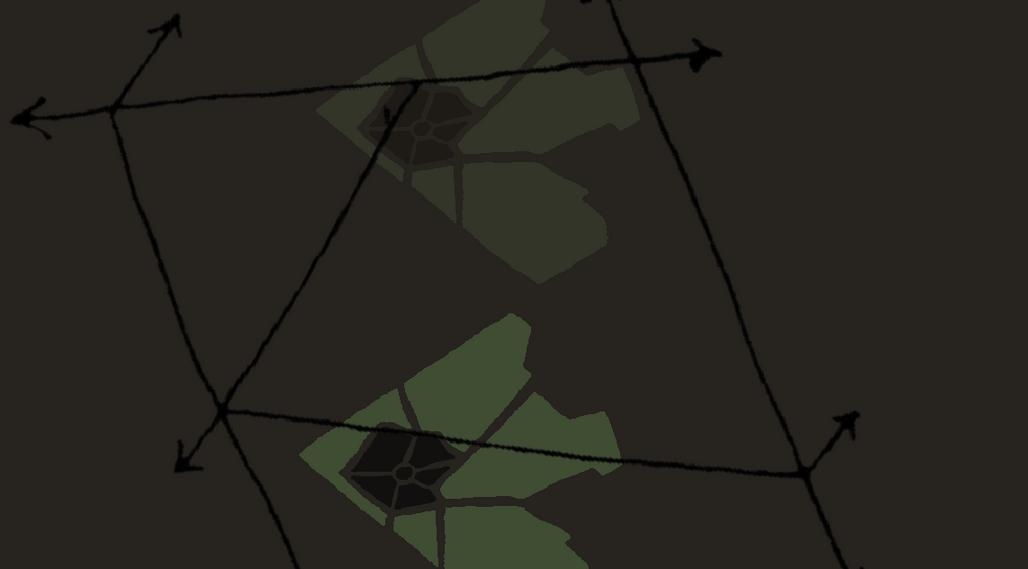
dialogue
d i a l o g u e
For these changes to be possible, it is mainly the political authorities who have to change their mindsets and demand different approaches from their city planners. However, we as individuals and collectives of our cities can and must exercise our power to demand such changes. Our taxes pay this infrastructure. No fast transformations can happen without citizen approval and support. The power we have can be exercised by means of dialogue and communication. Part of the transformation we need comes from us, responsibly taking ownership of our spaces, without violence and supporting inclusion.
Spatial
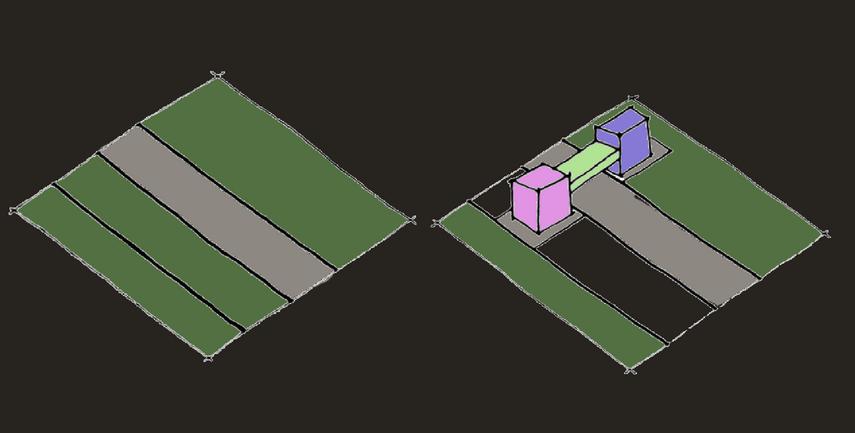

Urban Edges
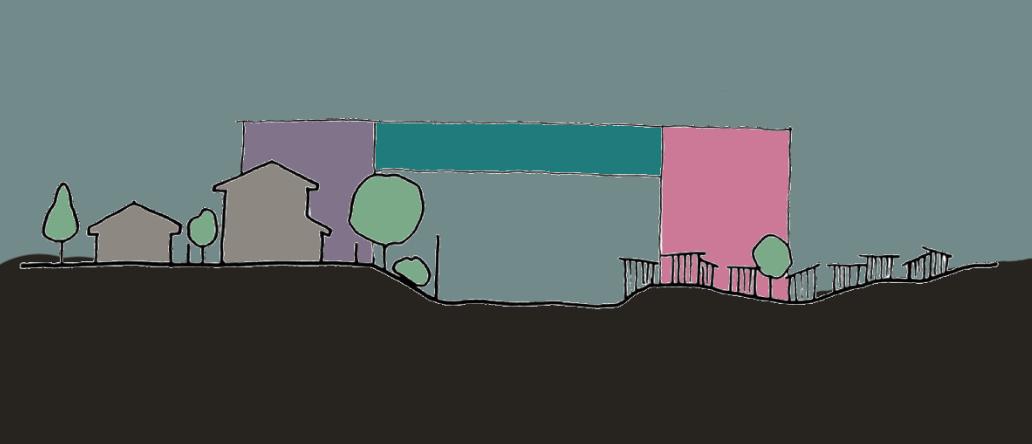
d i a l o g u e Inequality
e dialoguedialoguedialogu d i a l o g u e dialogue
Cultural Hubs High-IncomeSuburbsBarriersGreenAreasInformalSettlement
Conclusion
A walkable city brings social, environmental and economic benefits. The changes we need and want can be achieved! We have the power of creating our future and we must reclaim it for our cities! We do not want a future built on the same mistakes of the past. We can work together to build the future we all deserve, especially for younger generations. A future based on dialogue, where decisions in our spaces are consensual and not imposed, where we finally transform car cities and make them healthy, safe and walkable.
Food For Thought
Hopkins, R. (2019). From What Is to What If: Unleashing the power of imagination to create the future we want. Chelsea Green Publishing.
Speck, J. (2018). Walkable city rules: 101 steps to making better places. Island Press.
W A L K A B I L I T Y
PROMOTING WALKABILITY THROUGH DIALOGUE
1 2 3 4 5
Use public transport, walking and cycling as alternative means of transportation when possible. We have to make ourselves visible and make the need for alternative infrastructure obvious!
Organise walking tours in our neighborhoods to get to know our local shops and our neighbors. Discuss our need for safe walking. Start the dialogue!
Use participatory maps to show the areas where we feel safe, where not, and where changes are needed. Empower our people and give them voices!
Organise committees that communicate with city officials and pass on the changes we want to see. Organise our thoughts and actions. Extend the dialogue to the authorities!
Establish collaboration programs with universities, NGOs, and other institutions Look for support to sharpen our ideas and extend our impact Extend the dialogue to other stakeholders!
T H E W A L K A B L E C I T Y T H E W A L K A B
The Walkable City










